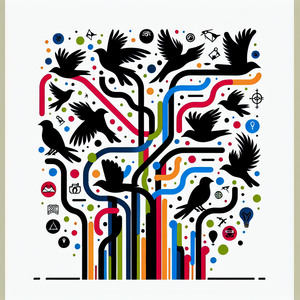From Inspector to Innovator: How Former Food Inspectors Can Transform Their Expertise into Thriving Consulting Businesses

The food industry operates in a heavily regulated environment, requiring compliance with complex regulations. Former food inspectors possess deep regulatory knowledge and hands-on experience, making them ideal consultants. They can help businesses address compliance issues, improve efficiency, and avoid costly mistakes. With growing demand for food safety consultants, former inspectors can turn their expertise into thriving ventures.
Steps to Launch a Food Safety Consulting Business
Starting a consulting business involves several key steps: defining a niche, building credibility, networking, developing client resources, and setting fair pricing. Former inspectors can focus on specific areas like HACCP compliance or FDA approvals, create a professional online presence, network strategically, and offer tiered pricing packages to attract clients and ensure profitability.
Success Stories: Inspiring Examples of Food Safety Consultants
Real-life examples highlight the success of former inspectors turned consultants. Sarah, a former USDA inspector, specializes in organic certification, helping small farms expand. Kevin, with expertise in meatpacking plants, consults for startups, saving them from costly recalls. These stories demonstrate the potential for impactful and rewarding careers in consulting.
The Benefits of Becoming a Food Safety Consultant
Consulting offers autonomy, financial rewards, continued relevance, and a proactive role in improving food safety. Consultants can set their schedules, choose clients, and stay engaged with industry developments. They empower businesses with tailored solutions, making a meaningful impact on food safety standards.
The transition from food inspector to food safety consultant is a natural evolution, offering financial success, flexibility, and the chance to make a lasting impact on the food industry. Former inspectors are uniquely qualified to guide businesses through compliance challenges, turning their expertise into fulfilling careers that benefit both themselves and the community.
HACCP Consultant
Food manufacturing companies, consultancy firms, or freelance opportunities
Core Responsibilities
Conduct risk assessments to identify critical control points in food production processes.
Develop and validate HACCP plans in line with FDA, USDA, or global regulatory standards.
Train staff on monitoring procedures and corrective actions to maintain compliance.
Required Skills
Expertise in HACCP principles and food safety regulations.
Strong analytical skills to identify and mitigate potential hazards.
Certifications such as HACCP or PCQI (Preventive Controls Qualified Individual) preferred.
Quality Assurance Specialist in Food Production
Large-scale food processors, packaged goods manufacturers, or third-party auditors
Core Responsibilities
Oversee quality assurance programs, including regular audits and inspections of processing facilities.
Investigate and resolve customer complaints related to food safety or quality.
Collaborate with R&D teams to ensure new products meet regulatory and quality standards.
Required Skills
Experience with food safety systems like SQF (Safe Quality Food) or BRCGS (Brand Reputation Compliance Global Standards).
Strong knowledge of Good Manufacturing Practices (GMPs) and allergen control.
Attention to detail and problem-solving ability.
Regulatory Compliance Advisor for Food Startups
Food startups, boutique consulting firms, or independent consultancy
Core Responsibilities
Assist in obtaining FDA or USDA approvals for new food products.
Advise on proper labeling practices, including allergen declarations and nutritional information.
Provide ongoing compliance training for startup teams to avoid regulatory pitfalls.
Required Skills
In-depth understanding of FDA regulations, FSMA (Food Safety Modernization Act), and USDA requirements.
Ability to simplify complex regulatory language for non-experts.
Familiarity with startup environments and the unique challenges they face.
Organic Certification Specialist
Organic certifying agencies, consulting firms, or independent contractors
Core Responsibilities
Guide clients through the organic certification process, including documentation and audits.
Conduct inspections and assessments to ensure adherence to organic standards (e.g., USDA Organic, EU Organic).
Provide ongoing support to maintain compliance and address certification challenges.
Required Skills
Deep knowledge of organic farming and food production standards.
Experience working with certifying bodies and regulatory agencies.
Strong organizational and project management skills.
Supply Chain Food Safety Auditor
Retail chains, global food and beverage companies, or auditing firms
Core Responsibilities
Perform safety audits of farms, suppliers, and distributors to ensure compliance with industry standards.
Assess supplier practices to identify risks related to contamination, traceability, or mislabeling.
Provide detailed reports and actionable recommendations to improve supply chain safety.
Required Skills
Experience with supply chain management and food traceability systems.
Proficiency in GFSI (Global Food Safety Initiative) schemes like FSSC 22000 or IFS.
Strong communication skills for stakeholder engagement and reporting.


